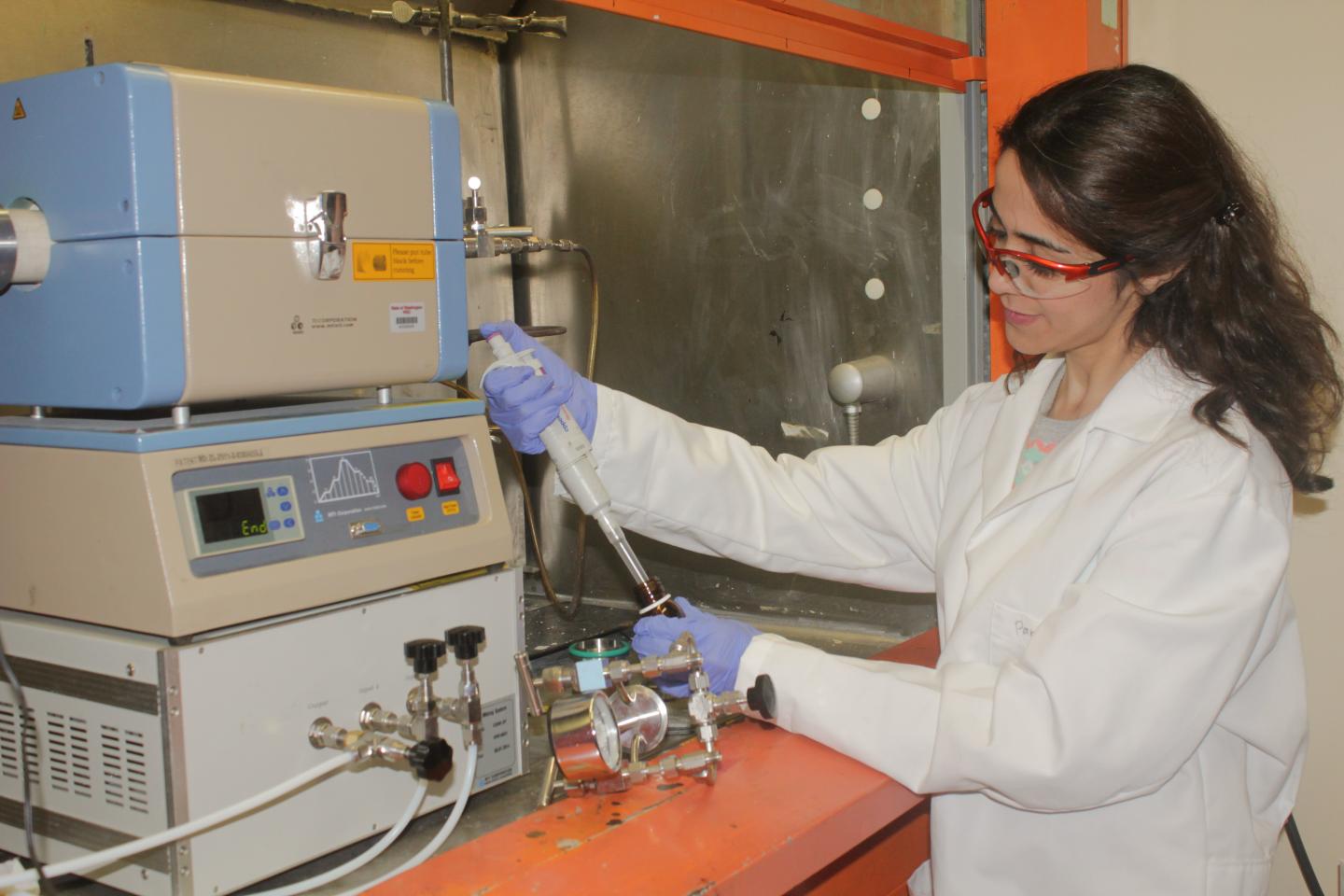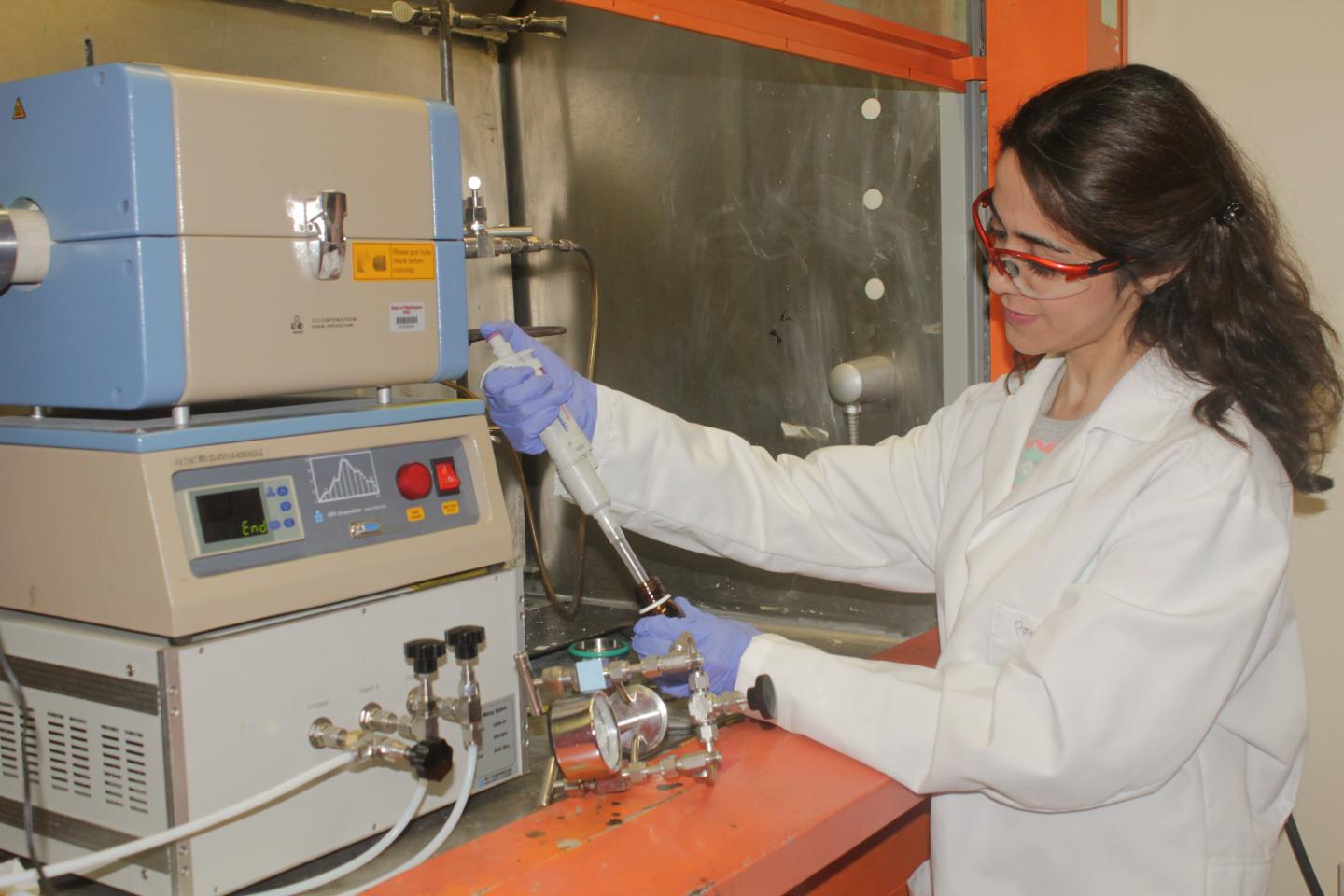
Credit: Washington State University
Technology being developed at Washington State University provides a non-invasive approach for diagnosing prostate cancer and tracking the disease's progression.
The innovative filter-like device isolates prostate cancer indicators from other cellular information in blood and urine. It could enable doctors to determine how cancer patients are responding to different treatments without needing to perform invasive biopsies.
Guidance for effective treatment
The WSU research team fitted a mat of tiny glass springs with specially designed biomarkers that attract the fatty droplets of proteins and RNA that tumor cells shed into body fluids. The droplets, called exosomes, contain genetic information that can be analyzed to determine a cancer's molecular composition, even how far it has advanced.
"It may be possible to predict which drugs would be most effective in treating a patient's cancer," said WSU chemistry professor Clifford Berkman, who led the design of the biomarkers. "More broadly, this technology could be expanded to other types of cancers and diseases."
Writing in Springer's Journal of Materials Science, Berkman, Parissa Ziaei, a Ph.D. student in the interdisciplinary materials science and engineering program, and Grant Norton, professor of mechanical and materials engineering, said their capture technique is more efficient than previous approaches at isolating prostate tumor exosomes from other bits and pieces of cellular information.
The researchers are working on designs for a version of their filter-like device for use in a clinical setting.
A non-invasive alternative to biopsy
Prostate cancer can be a serious disease, but most men diagnosed with prostate cancer do not die from it. In fact, more than 2.9 million men in the United States who have been diagnosed with prostate cancer at some point are still alive today, according to the American Cancer Society.
The fact that prostate cancer can remain in a human for years before spreading to other organs makes monitoring its progression and response to treatment an important, long-term process.
A biopsy, a procedure in which small samples of the prostate are removed with a needle, is sometimes performed on a patient if blood tests reveal abnormalities that indicate the presence of prostate cancer. Biopsies are also performed to track the progression of the disease and how it is responding to treatment. The biopsy is generally safe but sometimes leads to bleeding or infection.
The WSU exosome capture technique could provide a reliable and non-invasive alternative to biopsy.
"Say you have a urine sample from a patient known to have prostate cancer. You could pass the urine through the device we are in the process of putting together and measure the number of exosomes that are specifically from prostate cancer cells," Norton said. "The physician would propose a treatment plan and the amount of exosomes in a follow-up urine sample would indicate how effective the treatment was."
Possibilities for detecting other cancers
In addition to helping doctors monitor the progression of prostate cancer, the WSU researchers hope their new approach can be applied to help treat patients with other forms of cancer and disease. The filter-like mat of glass nanosprings synthesized in Norton's lab could feasibly be fitted with a wide array of biomarkers to attract cancer exosomes in urine, blood and other bodily fluids.
"It wouldn't be a big step to imagine applying what we are doing now to breast cancer or pancreatic cancer," Norton said. "It opens up all kinds of exciting possibilities."
The research supports WSU's Grand Challenges – initiatives aimed at particularly pressing societal concerns. It is particularly relevant to the challenge of sustaining health and changing the course of disease.
###
Media Contact
Grant Norton
[email protected]
509-335-6617
@WSUNews
############
Story Source: Materials provided by Scienmag





